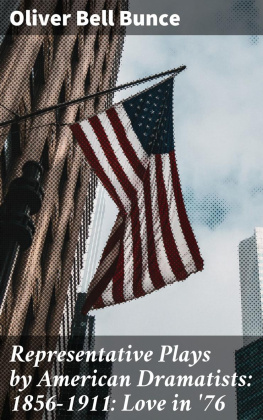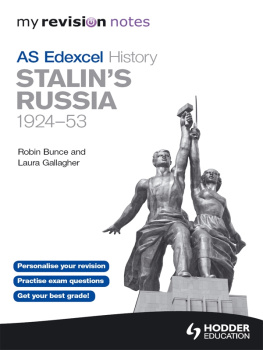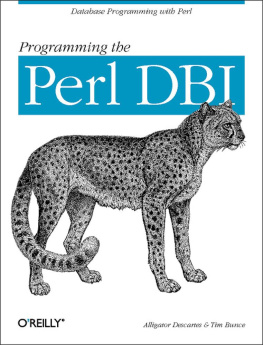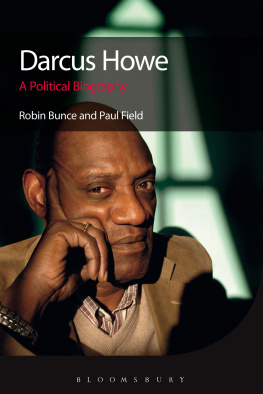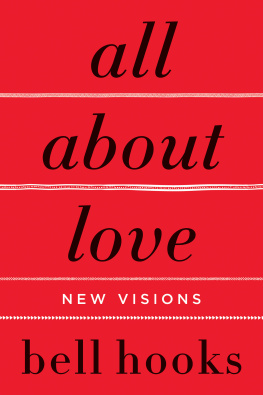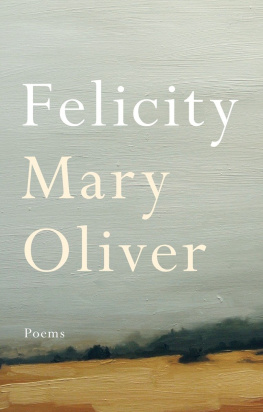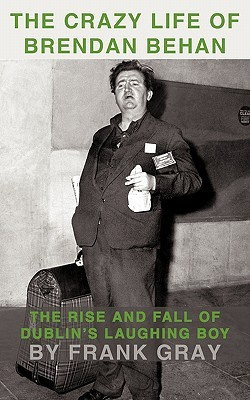OLIVER BELL BUNCE.
Table of Contents
(18281890)
The name of Oliver Bell Bunce is not prominently connected with theAmerican Theatre. Authorities have taken little or no trouble tounearth his association with the plays and players of his timethemid-period of the nineteenth century. Yet they all agree that, asillustration of "parlour comedy," his "Love in '76" is a satisfactoryexample of sprightliness and fresh inventiveness. For this reason, thesmall comedietta is included in the present collection. It challengescomparison with Royall Tyler's "The Contrast" for manner, and itsvolatile spirit involved in the acting the good services of suchestimable players as Laura Keene, Stoddart, and Ringgold. In thecast also was J.G. Burnett, author of "Blanche of Brandywine," adramatization of a novel by George Lippard, also produced by LauraKeene.
"Love in '76" was given its premire at Laura Keene's Theatre, NewYork, on February 28, 1857, for the benefit of the Shirt Sewers'Union; and was the second offering of a double bill beginning with"Faust and Marguerite." Though the critiques of the time recognizedin it a "nice little play," they balked at what was considered to bea foolish nomenclature, "Comedietta." What was liked about it,particularly, was the absence of patriotic fustian, for the nationaldrama of the time seems to have been loaded down with long flightsof fancy on the subject of liberty. Others hailed it as smart in thesocial sense. As late as March 31, 1892, the little play was revivedby amateurs for the benefit of a monument to be erected over theneglected grave of Washington's mother.
This was not the first time Bunce had appeared as a playwright. Therehad been seen, on June 10, 1850, at the New York Bowery Theatre, atragedy entitled "Marco Bozzaris; or, The Grecian Hero," and in thecast were J. Wallack, Jr., and his wife, together with John Gilbert.It was not based on the poem by Fitz-Greene Halleck, but, for itscolour and plot, Bunce went direct to history. For Wallack he alsowrote a tragedy, entitled "Fate; or, The Prophecy," and, accordingto Hutton, during the summer of 1848, the Denin Sisters produced his"Morning of Life," at the New York Chatham Theatre.
Such was the extent of Bunce's drama writing. His life was not cast inthe dramatic field, but rather in the publishing world. The playswere done in his early manhood. But he was pledged in interest to thetheatre, and there are many significant criticisms and descriptionsin print which convey an excellent impression of his attitude towardplays, players, and acting.
Bunce was a self-made man, with an excellent grasp of literature,which served him well in his various literary ventures. His mind wascast in channels of originality, and the history of book publishingin New York must needs consider the numerous suggestions, which,as literary adviser at different times for the houses of Harper andAppleton, he saw to successful fruition. In 1872, he became Editor ofAppleton's Journal, and it is to the files of this magazine we mustturn to extract his frank reaction to the theatre of his day. He wrotenovels, stories, essays, editorials, everything to win him the name ofjournalist; once he had a publishing house of his own, doing businessunder the firm name of Bunce & Co. He was always cordial toward everymove to further the literary interest of the country, and was amongthe first to welcome the founding of the Authors Club. It may be thathis "Love in '76" was a by-product of a book written by him, in 1852,and called "Romance of the Revolution."
Bunce wrote well on theatrical matters; he is much more vivid andhuman than many a better-known critic. Here, for instance, is animpression of the old Park Theatre, New York, in 1846.
"That was the time," he writes in "The Editor's Table" of Appleton'sJournal for October, 1880, "when the theatre had a pit, where criticsand wiseacres were wont to assemble and utter oracular things aboutthe plays and the performers. The actors were in those days afraidof the Pit, especially at the Park, of the fourth bench from theorchestra, where the magnates of the pen sat watchful, and where oldNestors of the drama delivered their verdicts in terms that no onedared to gainsay. The Pit was entered by cellar steps, and through ahalf-lighted, subterranean passage. Decorative art, as we see it nowin the full bloom of the Madison Square auditorium and Mr. Daly'slobby, had not even given a hint of its coming."
In The Galaxy for February, 1868, Bunce ventures to survey "Someof Our Actors" from the standpoint of deploring the pre-Raphaeliterealism of the modern school. He scored the attempted "truth" and"fidelity" of Matilda Heron, and, in considering Maggie Mitchell'sFanchon, he bespoke the cause of ideality, as necessary in Fanchonas in Juliet. "Modern comedy acting," he declares, "is usually abright, brisk touch-and-go affair, suited to modern plays; but to themellow and artistic style of a former generation, it is as the lightclaret wines, now so much in use, to crusty old port."
Except in the instances of our comedians, like Murdoch, with his"lightness of manner, that grace, which I have described elsewhere assnuffing a candle in a way to make you feel that snuffing candles isthe poetry of life;" Harry Placide, with whose retirement went theretirement of Sir Peter Teazle and Sir Harcourt Courtley, ("WhenPlacide and Gilbert are gone," he writes, "Sheridan will have to beshelved"); Holland, with his intense fun in eccentric bits; Brougham,without whom "The Rivals" is difficult to endureapart from these thestage of the time, to Bunce, was not all it should be. He valuedat their worth the romantic extravagances of the Wallack family;he applauded the sound judgment, and deplored the hard manner ofDavenport; he viewed calmly what he regarded to be an overestimationof Edwin Boothone of the first criticisms of an avowedly negativecharacter I have seen aimed directly at this actor. In other words,Bunce fought hard against the encroachment of the new times upon theacting of his early theatre days. The epitome of his old-time attitudeis to be found in Appleton's Journal for April 3, 1869. His bettermood was to be met with in his discussion of the players of EllenTree's type. Here are his words of censure against the new order:
"If we old files are to be believed, the art of acting is dying out,and the very tradition of the stage disappearing. Very likely thespirit, which in painting we call pre-Raphaelism, is obtaining itsinfluence on the stage, and that some of the actors are turning out ofdoors the traditions and formal mannerisms of the schools, and goingback to nature and truth for their inspiration. There were veryartificial methods, no doubt, among the old actors, but there was alsoa very consummate knowledge of the art, a great deal of breadth,force and skill, and a finished training, which the new schools donot exhibit. In aiming to be natural, some of our actors seem to haveconcluded that their profession is not an art. They grow heedlessin the delivery of language, weakening or obscuring its meaning, andmissing its significance; and in some way lose that rich and mellowcolouring that characterized the bygone performers. So marked is this,that some of the old dramatic characters are abandoned altogether,because in the hands of the Realists they fade away into ineffectiveand colourless forms. The


